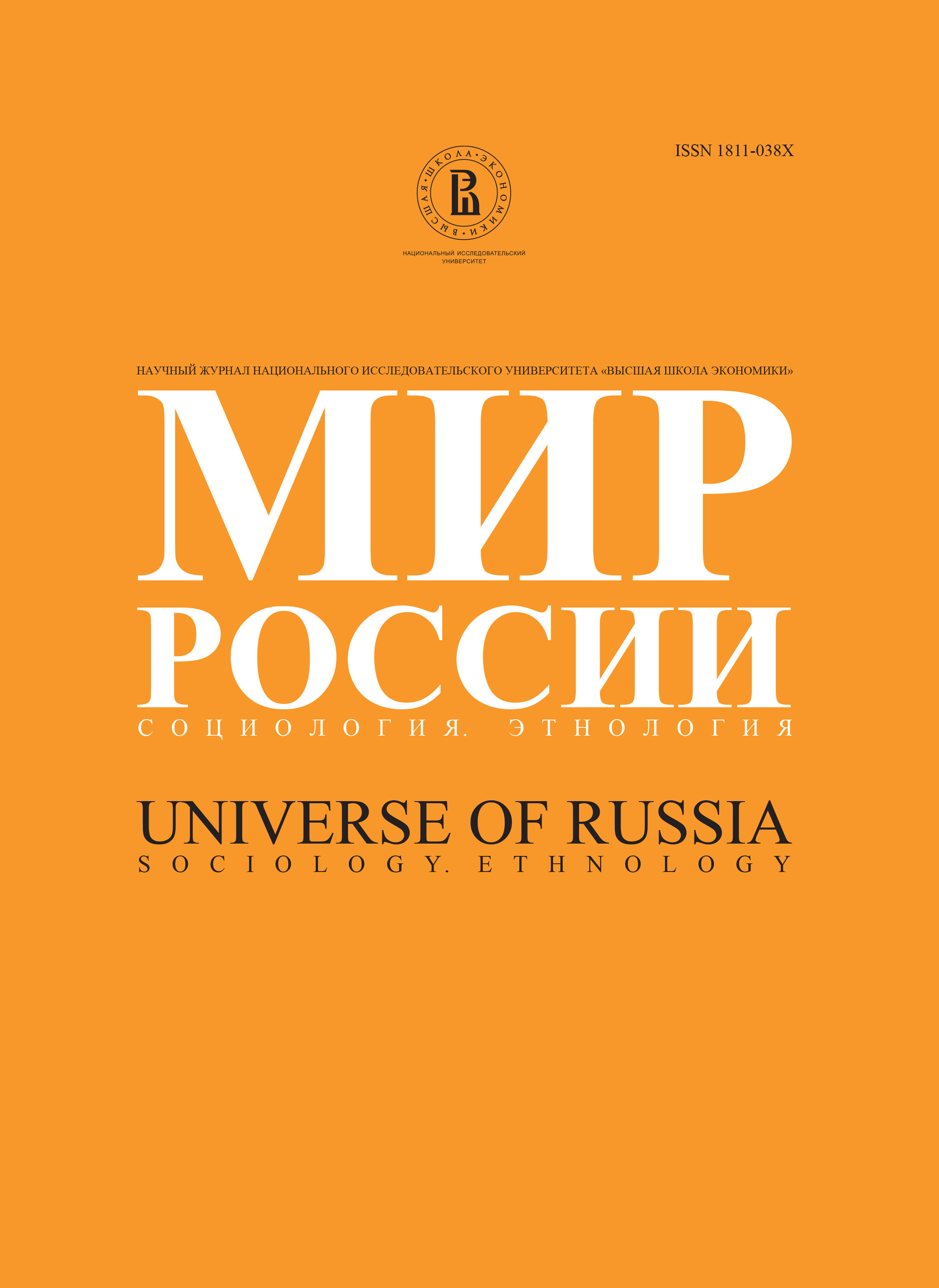Middle Class In The Contemporary Russia
Abstract
Is the middle class the best card that history has given the Russians to play? Many Russian political forces as well as sociologists seem to think so. Almost all political parties seem to be hankering for a middle class, and social scientists are giving their full backing. In this discourse political, moral and social aspects are intertwined in a spirit which comes pretty close to traditional talk about the “sacred proletariat”. In this article it is argued that the “sacred middle class” comes close to the traditional Soviet argumentation about the hegemonic role of the working class. This new argument on the leading function of the middle class is open to several critical remarks. In these considerations only limited attention is paid to the real interests and endeavors of the middle class. As Alwin Gouldner noted, many social scientific grammars start out from the assumption that the powerful are good and the bad weak. However, moral goodness and power do not necessarily go hand in hand. The sacred character of the middle class is taken for granted in contemporary Russian sociology. But what about the moral ambivalence of this new social force? Should we not also in Russia follow Gouldner´s point that the new middle class is profoundly flawed as a new universal class? It is elitist and self-seeking and uses its special knowledge to advance its own interests and power and to control its own work situation. The view that is defended in this article is that the professional competencies of the middle class play a crucial part in resolving many of the key social problems in present-day Russia. On the other hand, the middle class has its own interests and relations to other classes. One may also ask how much is it really possible to say about the role of the new middle class in general terms, without exploring the nature of the “general needs” in a particular society. For example, what will be the role of the middle class in formulating the development path of post-industrial Russia? Are there any real prospects for the creation of a European welfare state? And what about agency in the process of constituting the middle class? Is this process the making of the class itself or not? Starting from general theoretical and historical perspectives this article shows, how the situation of the middle class has changed during the transition. In the comparative analysis Western European countries (and Nordic countries in particular) are in a way class societies where all classes are strong. In these countries relations of ownership are well-established and the core of the new middle classes, both managers and professionals, have certain undisputed privileges compared to the working class. On the other hand the working class also has its own strong organizations, trade unions and parties through which it exercises an influence as part of civil society. Only a small portion of the societal residue goes directly into private consumption by the propertied class. That is why these societies cannot be regarded as exploiting societies proper. Russia, then, seems to fall into the opposite category where all social classes are weak. Relations of ownership in Russia are still in the process of making, and the middle class’s power resources remain weak. The working class’s organizations are weak, and at the company level the power resources of workers are controlled by managers. No doubt the positions of the new bourgeoisie are already taking shape as the process of privatization is moving into its final stages. But for the time being, the process of structural change in the economy is still very much ongoing; it is still far too early to talk about profitable industries or about certain prospects. The organizations and interests of the middle class are beginning to take shape, although in many ways in contradictory and difficult circumstances. Indeed the success of classes will largely depend on more general hegemonic projects in society and on their own successes and failures in formulating alternative strategies.






